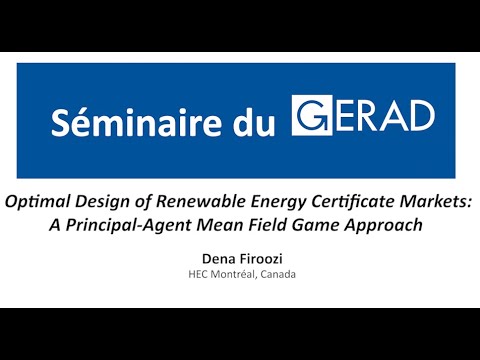Description:
Explore a seminar on the optimal design of Renewable Energy Certificate (REC) markets using a Principal-Agent Mean Field Game approach. Delve into the complex dynamics between regulators and power generators, examining how noncompliance penalties influence clean energy production and market behavior. Learn about the application of mean field game techniques to find Nash equilibria among agents and extended McKean-Vlasov control problems to determine optimal penalty functions. Discover how this approach balances environmental impact and revenue generation in REC markets, incorporating market clearing mechanisms and agent heterogeneity. Gain insights into the economic implications of linear penalty functions and their effects on regulated firms' strategies for navigating the REC system.

Optimal Design of Renewable Energy Certificate Markets: A Principal-Agent Mean Field Game Approach
Add to list
#Social Sciences
#Economics
#Game Theory
#Mean-Field Games
#Nash Equilibrium
#Business
#Energy Markets